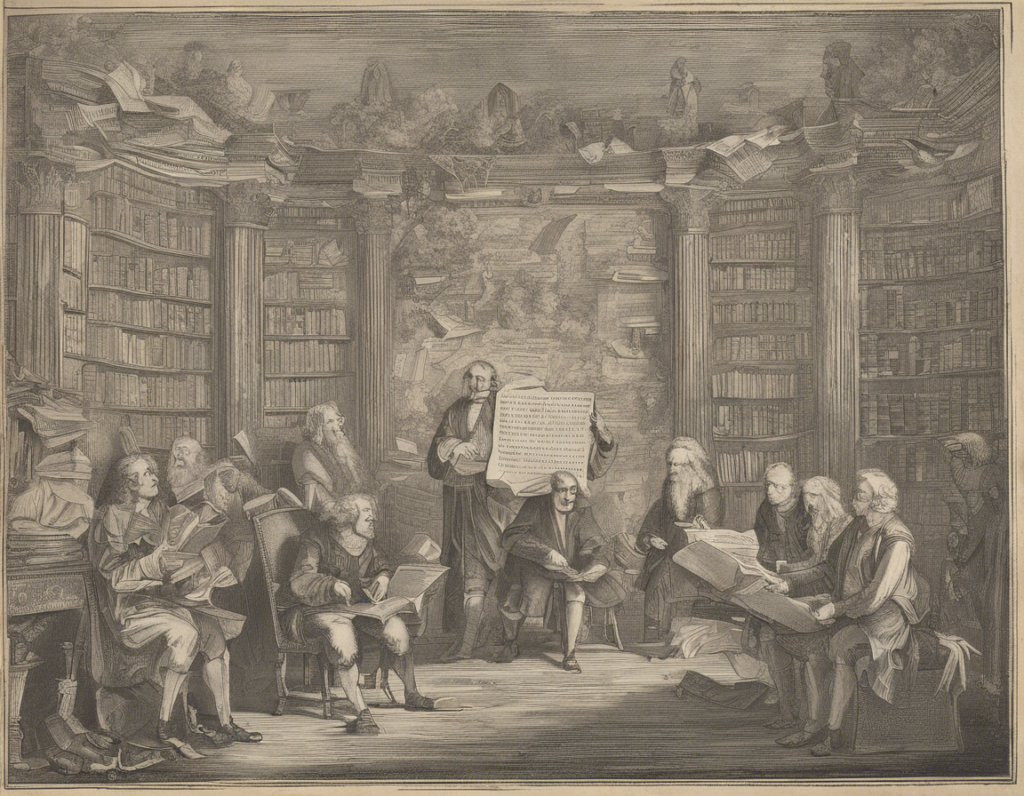Introduction
English literature is a rich and diverse body of work that has evolved over centuries, reflecting the cultural, social, and political landscape of the times. From the epic poems of the Middle Ages to the modern works of contemporary authors, English literature has produced some of the most enduring and influential works in the world. In this article, we will explore the history of English literature, from its early beginnings to the present day, focusing on key periods, genres, and authors. Additionally, we will discuss the advantages of accessing this literary treasure trove in PDF format.
Early English Literature
The history of English literature can be traced back to the Anglo-Saxon period, which began in the 5th century with the arrival of Germanic tribes in Britain. During this era, oral tradition played a crucial role in the dissemination of stories and poems, with notable works such as “Beowulf” standing as a testament to the artistic prowess of early English writers.
Medieval Literature
The medieval period in English literature saw the emergence of Chaucer’s “Canterbury Tales,” a collection of stories that provide insight into the social and cultural milieu of the time. Other notable works from this period include Sir Gawain and the Green Knight, a chivalric romance that continues to captivate readers to this day.
Renaissance
The Renaissance marked a period of great literary innovation in England, with authors such as William Shakespeare, Christopher Marlowe, and Ben Jonson producing some of the most enduring works in the English language. Shakespeare’s plays, in particular, have had a profound impact on literature and continue to be performed and studied around the world.
The 17th and 18th Centuries
The 17th and 18th centuries saw the rise of the metaphysical poets, including John Donne and Andrew Marvell, who explored complex themes of love, religion, and mortality in their work. This period also gave rise to the novel, with writers like Daniel Defoe, Jonathan Swift, and Samuel Richardson contributing to the development of this new literary form.
Romanticism and Victorian Literature
The 19th century witnessed the emergence of the Romantic poets, such as William Wordsworth, Samuel Taylor Coleridge, and John Keats, who celebrated nature, emotion, and individualism in their work. This period also saw the rise of the novel as a dominant literary form, with authors like Charles Dickens, Jane Austen, and the Brontë sisters producing works that continue to be regarded as classics of English literature.
Modern and Contemporary Literature
The 20th and 21st centuries have seen English literature continue to evolve and diversify, with authors exploring a wide range of themes and styles. From the modernist experimentation of writers like Virginia Woolf and James Joyce to the postcolonial perspectives of authors like Chinua Achebe and Salman Rushdie, contemporary English literature remains vibrant, dynamic, and relevant.
Accessing English Literature in PDF Format
One of the advantages of accessing English literature in PDF format is the convenience and flexibility it offers. With PDFs, readers can easily download and read classic works of literature on their electronic devices, making it easier to carry around a vast library of books wherever they go. Additionally, PDFs preserve the formatting and layout of the original printed text, ensuring that readers can experience the work as it was intended by the author.
Moreover, PDFs often include interactive features such as hyperlinks and annotations, allowing readers to explore additional information, definitions, and critical analysis with a simple click. This can enhance the reading experience by providing valuable context and insights into the text. Furthermore, PDFs are compatible with a wide range of devices and operating systems, making them accessible to readers regardless of their preferred platform.
Overall, accessing English literature in PDF format provides readers with a convenient and immersive way to engage with classic and contemporary works, allowing them to delve into the rich tapestry of the English literary tradition with ease and flexibility.
Frequently Asked Questions (FAQs)
1. Can I access English literature in PDF format for free?
Yes, there are many websites that offer free downloadable PDFs of classic works of English literature that are in the public domain.
2. Are there any advantages to reading English literature in PDF format over print books?
PDFs offer the convenience of portability and accessibility, allowing readers to carry around a vast library of books on their electronic devices.
3. Can I find scholarly articles and critical essays on English literature in PDF format?
Yes, many academic journals and databases provide PDFs of scholarly articles and critical essays on a wide range of English literary works and themes.
4. How can I cite a PDF document of an English literary work in my research paper?
You can cite a PDF document of an English literary work using the same format as you would for a print book, including the author, title, publication date, and PDF format designation.
5. Are there any disadvantages to accessing English literature in PDF format?
Some readers may prefer the tactile experience of reading a physical book, as well as the aesthetic appeal of a print edition over a digital format. Additionally, PDFs may not provide the same level of engagement and immersion as a physical book for some readers.
